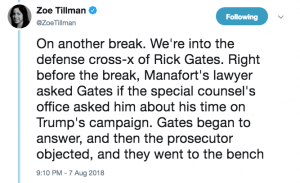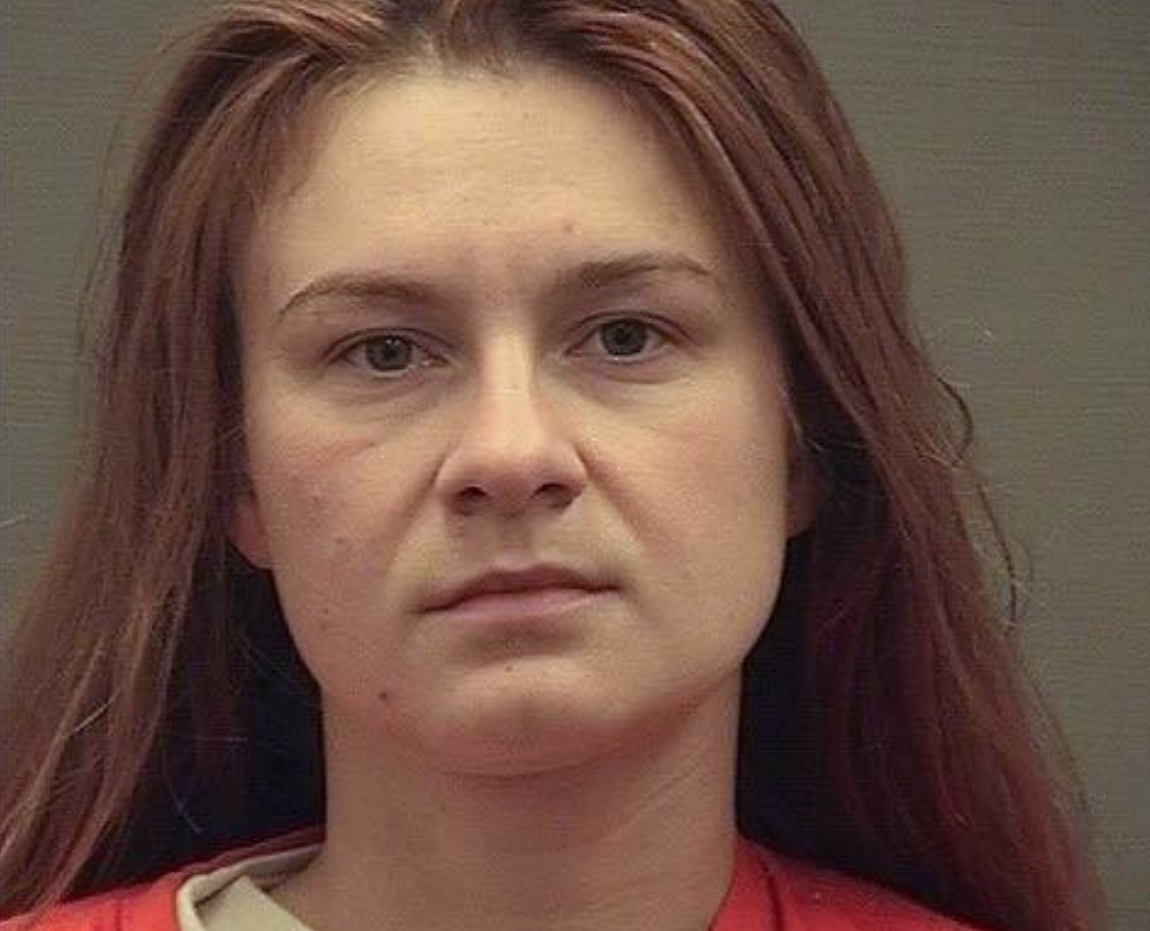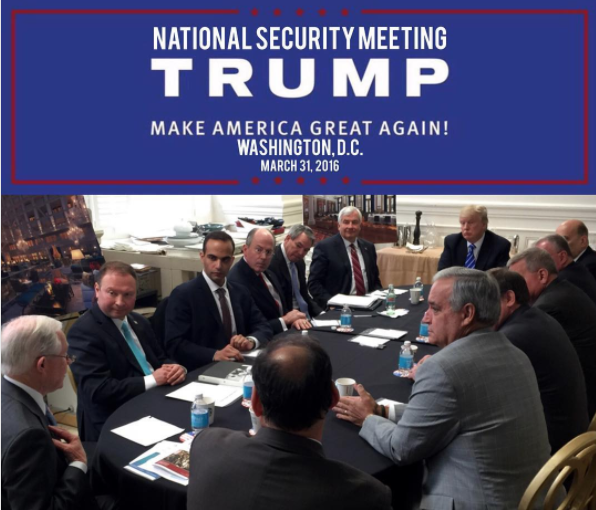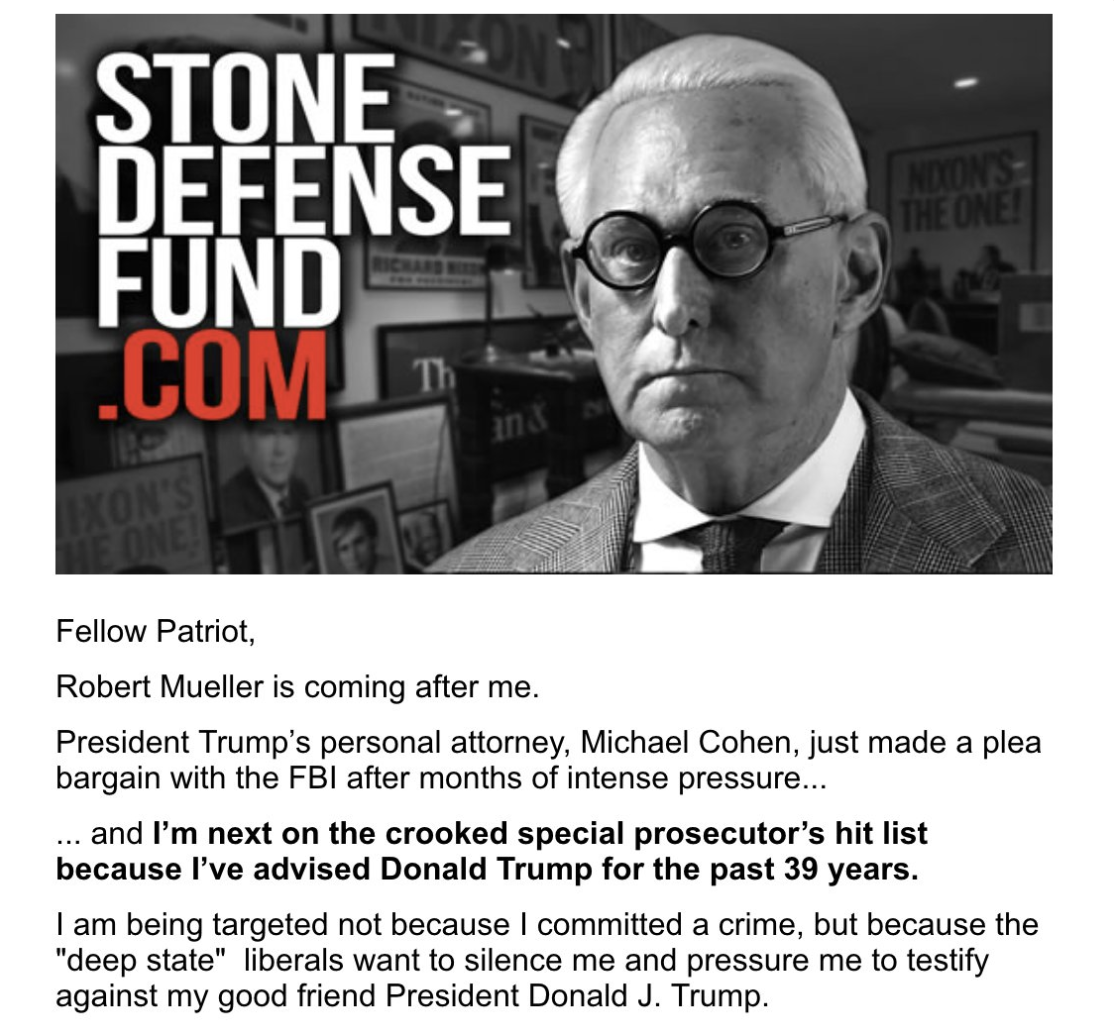On KT McFarland’s Belated Unforgetting of the Truth
The WaPo has an important story about how KT McFarland decided to unforget key details about her role in coaching Mike Flynn through reassuring Russia, on December 29, 2016, that the Trump Administration would ease off on sanctions. McFarland lied about whether sanctions were discussed in a summer 2017 interview with the FBI, then her memory seems to have cleared up after the Mike Flynn plea deal.
When FBI agents first visited her at her Long Island home in the summer of 2017, McFarland denied ever talking to Flynn about any discussion of sanctions between him and the ambassador, Sergey Kislyak, in December 2016 during the presidential transition.
For a time, investigators saw her answers as “inconsistent,” putting her in legal peril as the FBI tried to determine if she had lied to them.
[snip]
Not long after Flynn’s plea, McFarland was questioned by investigators again about her conversations with Flynn, and she walked back her previous denial that sanctions were discussed, saying a general statement Flynn had made to her that things were going to be okay could have been a reference to sanctions, these people said.
McFarland’s account does not answer the question of what the president knew or didn’t know about Flynn’s interactions with the ambassador, these people said.
McFarland didn’t respond to multiple requests for comment, including emails and calls to her home.
Eventually, McFarland and her lawyer Robert Giuffra were able to convince the FBI that she had not intentionally misled the bureau but had rather spoken from memory, without the benefit of any documents that could have helped her remember her exchanges with Flynn about the Kislyak conversations, these people said.
This is thoroughly unsurprising, and it probably has as much to do with McFarland withdrawing her nomination to be Ambassador to Singapore as did any concerns about a confirmation hearing where her past lies to Congress would be an issue. It explains part (though just part) of the Transition Team’s outrage that Mueller had obtained emails that the Trump people would have otherwise claimed privilege over. By doing that, Mueller caught McFarland (and, likely, a number of other people) in lies by showing their extensive communications that contradicted the emails.
Nor is it surprising that McFarland was able to clear up her testimony (indeed, the WaPo notes that Sean Spicer was telling similar lies as McFarland was telling, so he may have also had to have cleaned up testimony). She’s got a serious attorney, Robert Giuffra, and unlike George Papadopoulos she (presumably) didn’t do anything stupid, like deleting her entire Facebook account, when she tried to clean up her lies. That happens in cases like this (especially where the witnesses are powerful enough to fight a false statements case aggressively). Remember that Karl Rove cleaned up his testimony in the Plame investigation four different times.
Indeed, similar unforgettings have probably happened in the wake of each plea deal, or with the unveiling that Mueller obtained search warrants for at least five AT&T phones (and probably a similar number of Verizon phones) in the wake of the Rick Gates plea. That’s what I meant when I suggested that the Paul Manafort plea may set off a kind of mass Game Theory, as each of up to 30 co-conspirators consider whether they want to change their testimony before the former campaign chair clarifies it to Mueller for them, or before their fellow rats jump ship first.
They’re trying to stave off an awful game of prisoner’s dilemma.
Consider if you’re one of the other 37 (which might be down to 34 given known cooperators, or maybe even fewer given how uncertain Rudy seems to be about Don McGahn’s third session of testimony) members of the Joint Defense Agreement, especially if you’re one who has already testified before the grand jury about matters that Manafort (and Gates) might be able to refute. So long as there’s no chance Trump will be touched, you’re probably still safe, as you can count on Trump rewarding those who maintain the omertà or at the very least working to kill the Mueller inquiry shortly after the election.
But if you have doubts about that — or concerns that other witnesses might have doubts about that — you still have an opportunity to recall the things you claimed you could not recall a year ago. Depending on how central your testimony is, you might even be able to slip in and fix your testimony unnoticed.
So each of 37 (or maybe just 30) people are considering whether they have to recalculate their decisions about whether to remain loyal to the President or take care of themselves.
While I suspect Mueller has key players in the case in chief largely sewn up, this should accelerate the process and make any prosecutions easier (assuming the NYT doesn’t get Rosenstein fired before then).
So one takeaway from this story — told probably eight months after the fact — is that Mueller has been slowly chipping away at the omertà, and that process will only keep getting easier (in part because virtually none of these people have any decent operational security).
But the other takeaway, and the likely explanation for it coming out, is that my assessment of why the Transition squawked so loudly last year is correct: they wanted to hide how closely Donald Trump micromanaged the sanctions conversation with Sergei Kislyak, and so both Flynn and McFarland lied about it, then subsequently cleaned up their lies. That puts Donald Trump attempting to deliver the quo of the quid pro quo.
Trump may be answering the take home exam he told Mueller he’d be willing to complete, which includes this question, which got added in the wake of Flynn’s plea and probably McFarland’s revised testimony: What discussions did you have during the campaign regarding Russian sanctions?
The correct answers to that question are getting narrower and narrower.
Update: Fixed syntax of Spicer description.
As I disclosed in July, I provided information to the FBI on issues related to the Mueller investigation, so I’m going to include disclosure statements on Mueller investigation posts from here on out. I will include the disclosure whether or not the stuff I shared with the FBI pertains to the subject of the post.










